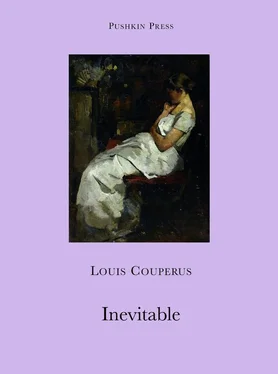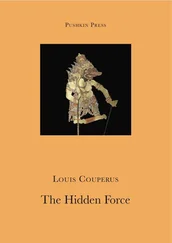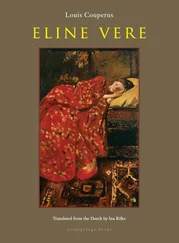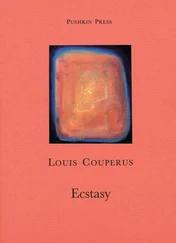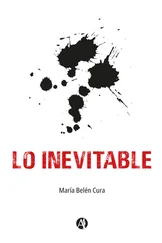And after dinner people sat in the drawing-room, in the hall, getting to know this person and that, and talking of Rome, Rome, Rome … There was always great excitement about the music in the various churches: people consulted the Herald , asked Rudyard, who knew everything, and surrounded him, while he smiled, fat and polite, and distributed tickets, telling them the days and times when there was an important service in such and such church. Now and then, in passing, he gave English ladies who were not au fait, information about the complex formalities and hierarchies of Catholic worship: he told them the nationalities indicated by the various colours of the seminarists whom one met in hordes on the Pincio in the afternoon, staring at St Peter’s, in ecstasy at the mighty symbol of their mighty religion; he told them the difference between a church and a basilica; he told intimate stories about the life of Leo XIII. He talked about all this in a fascinating, insinuating tone: the English ladies, eager for information, hung on his every word, found him most charming, asked him for a thousand details.
These days, then, were a time of recuperation for Cornélie. She recovered from her exhaustion, and became indifferent to Rome. But she had no thought of leaving early. Whether she was here or somewhere else, it was the same: she had to be somewhere. Apart from that the pensione was good, and her table companions were excellent company. She no longer read Hare’s Walks through Rome or Ovid’s Metamorphoses , but reread Ouida’s Ariadne . She did not like the book as much as when she had found it in The Hague three years before, and read nothing else. But she enjoyed herself for a whole evening with the Von Rothkirch ladies looking at Miss Hope’s collection of seals and sample album. How keen those Americans were on nobility and royalty. The baroness magnanimously stamped her coat-of-arms in the album. The samples were much admired, gold brocade, silk as heavy as silver, foliage-patterned tulle. Miss Hope told them how she had acquired them: she knew one of the queen’s lady’s maids through her having previously served an American lady and for a high price that maid was able to provide her with the samples: a precious scrap, picked up while the queen was having a fitting, sometimes even cut from a wide seam. The child was prouder of her collection of samples than an Italian prince of his paintings, said Baroness Von Rothkirch. But despite that ridiculousness, that vanity, the beautiful American girl appealed to Cornélie because of the spontaneity and honesty of her nature. In the evenings she looked utterly charming, in a black low-cut dress or a red chiffon blouse. For that matter, it was different every evening. It was a kaleidoscope of outfits, blouses, jewels. She wandered through the ruins of the Forum in a tailored off-white linen suit, lined in orange silk, and her white lace petticoat tripped airily over the foundations of the Basilica Julia or the temple of Vesta. Her busily designed hats provided a dash of the colours of the Avenue de l’Opéra or Regent’s Street amid the tragic earnestness of the Colosseum or in the palace ruins of the Palatine. The young baroness teased her about her orange silk lining, so in keeping with the Forum; about her hats, so in keeping with the seriousness of a site of Christian martyrdom, but she never became angry. “But it’s a lovely hat!” she would reply in her Yankee accent, giving a splendid view of her fine teeth, but opening her mouth wide, as if she were cracking hazelnuts. And the child was delighted, delighted with the “old baroness” and the “young baroness”, delighted at being in a pensione run by a down-at-heel Italian marchesa . And the moment she caught sight of the grey lion’s mane of the Marchesa Belloni, she would leave the others, rush up to her — according to Mrs Von Rothkirch, because a marchioness is above a baroness — pull ‘la Belloni’ into a corner and monopolise her, if possible for the whole evening. Rudyard joined the two of them, the marchioness and Miss Hope, and seeing this Cornélie again wondered what Rudyard was, who he was, and what he was after. But it did not interest the baroness, who had just obtained a ticket to mass in the Papal chapel, and the young baroness said only that he was a good raconteur of saints’ legends, which helped explain some paintings in Doria and Corsini.
ON ONE OF THOSE EVENINGS Cornélie made the acquaintance of the Dutch family, next to whom the marchesa had first wanted to seat her: Mrs Van der Staal and her two daughters. They were also staying in Rome for the whole winter, they had friends there and went out. The conversation flowed easily, and Mrs Van der Staal invited Cornélie up to her sitting-room for a chat. The following day she went to the Vatican with her new friends, and heard that Mrs Van der Staal was expecting her son from Florence, who was to come to Rome to pursue his archaeological studies.
Cornélie was glad to find a Dutch element in the hotel that was not uncongenial. She enjoyed being able to speak Dutch and freely admitted it. In the space of a few days she was on intimate terms with Mrs Van der Staal and the two girls, and the first evening after the arrival of Mr Van der Staal Jr, she revealed more of herself than she had ever thought herself capable of doing to strangers whom she had known just a few days.
They were in the Van der Staals’ sitting-room, Cornélie in an easy chair, by the tall blazing wood fire, as it was a chilly evening.
She had talked about The Hague, about her divorce, and now she talked about Italy, about herself.
“I can’t see anything any more,” she confessed. “My head is spinning from Rome. I can’t see any more colours, any more shapes. I don’t recognise people any more. They swirl about me so. Sometimes I feel a need to sit alone for hours in my birdcage, upstairs, in order to recover. This morning in the Vatican, I can’t remember it, I didn’t retain a thing. Things are always dull and grey around me. Then the people in the pensione . The same faces every day. I see them and yet I don’t see them. I see … Mrs Von Rothkirch and her daughter, then the beautiful Urania, Rudyard and the English lady, Miss Taylor, who is always worn out with sightseeing, and finds everything ‘most exquisite’. But my memory is so bad that in my solitude I have to work it out: Mrs Von Rothkirch is tall, stately, with the smile of the German empress, whom she resembles slightly, talkative yet indifferent, as if her words were just falling indifferently from her lips …”
“You’re very observant …” said Van der Staal.
“Oh, don’t say that!” said Cornélie, almost annoyed. “I can’t see anything, can’t retain anything. I have no impressions. Everything around me is grey. I don’t really know why I travel … When I’m alone I think of the people I meet … I’ve got Mrs Von Rothkirch now and I’ve got Else. A round witty face with tall eyebrows, and always a witticism or a ‘punch line’: I sometimes find it tiring, it makes me laugh so much. But still, they are nice. Then there’s the beautiful Urania. She tells me everything: she is as communicative as I am at this moment. And Rudyard too, I can see him in front of me.”
“Rudyard!” smiled Mrs Van der Staal and the girls.
“What is he?” asked Cornélie, curious. “He’s always so polite, he recommended a wine to me; he’s always able to get tickets.”
“Don’t you know what Rudyard is?” asked Mrs Van der Staal.
“No, and neither does Mrs Von Rothkirch.”
“Then beware,” laughed the girls.
“Are you Catholic?” asked Mrs Van der Staal.
“No …”
“And nor is the beautiful Urania? Or the Von Rothkirchs?”
Читать дальше
